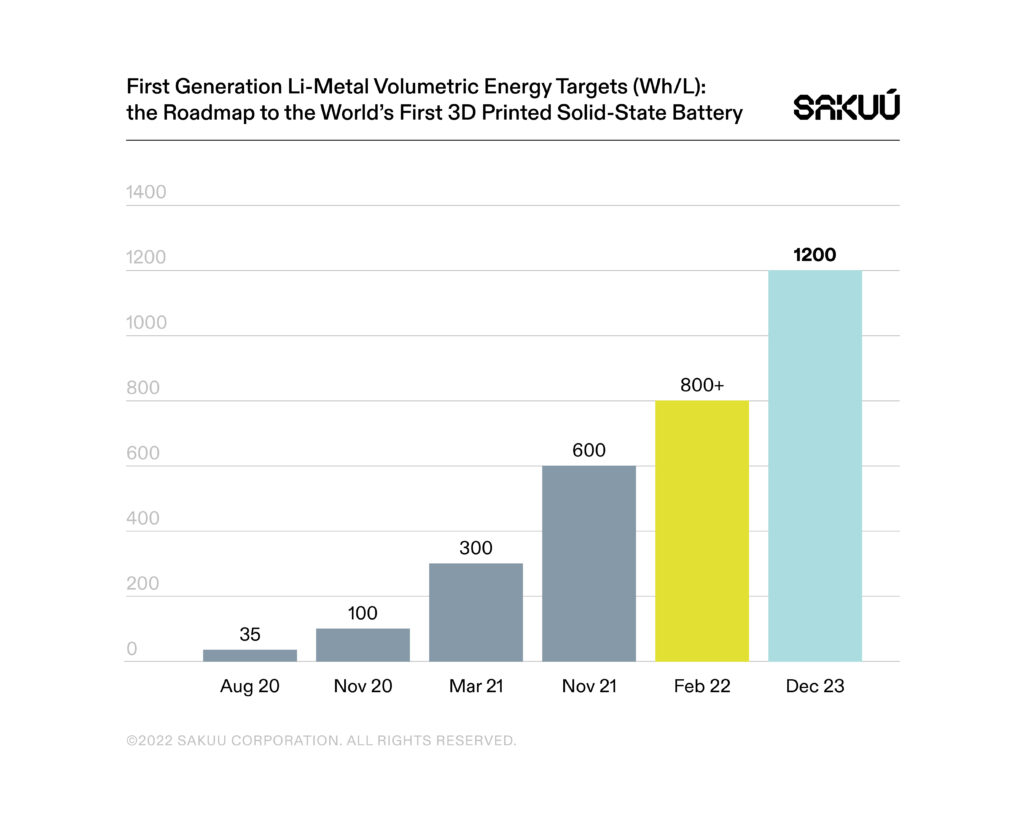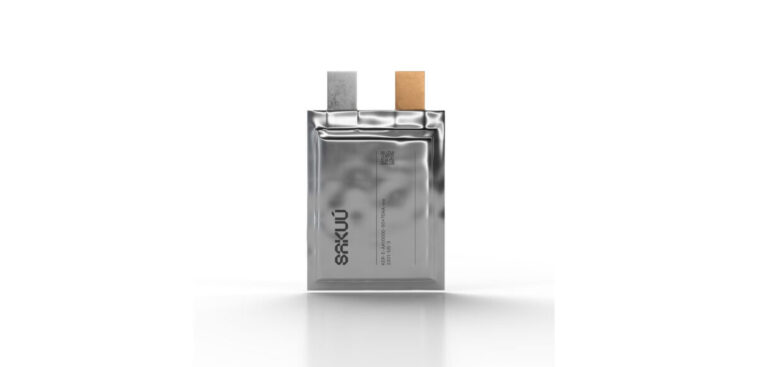California-based Sakuu, which is developing what it says is the world’s first 3D-printed solid-state battery, has announced that it has hit a benchmark energy-density of 800Wh/L with its first-generation, non-printed lithium metal battery. The company’s aim is to create fully 3D-printable solid-state batteries capable of greater than 1,200Wh/L by 2023.
“The arrival of a safe, sustainable and high-performance SSB, manufactured with a totally novel 3D printing method can solve critical supply chain and safety issues while moving beyond limitations of today’s lithium-ion batteries,” stated Robert Bagheri, founder and CEO of Sakuu. “We are on track to develop that ‘holy grail’ solid-state battery by 2023, and this first-generation benchmark is a validating accomplishment on the roadmap to significantly better batteries.”
Sakuu says its battery’s Wh/L capabilities have increased exponentially since development began in August 2020, and with this latest benchmark test completed in February 2022, it is competitive with leading commercially available batteries. In addition to the 800Wh/L mark, the company’s first-generation lithium-metal battery demonstrated high energy retention of 97% after 200 cycles. The battery, while remaining dendrite-free, is expected to record 80% retention at 800 cycles once cycling has completed.
Moving ahead, Sakuu anticipates another substantial leap in energy density in its second-generation fully printed SSB, which will see sample cell deliveries begin in early 2023.
“We are creating a line of safe, customizable, low-cost and high-performance batteries, and manufacturing them in a completely transformative and sustainable manner to satisfy large-scale global demand,” said Bagheri.



